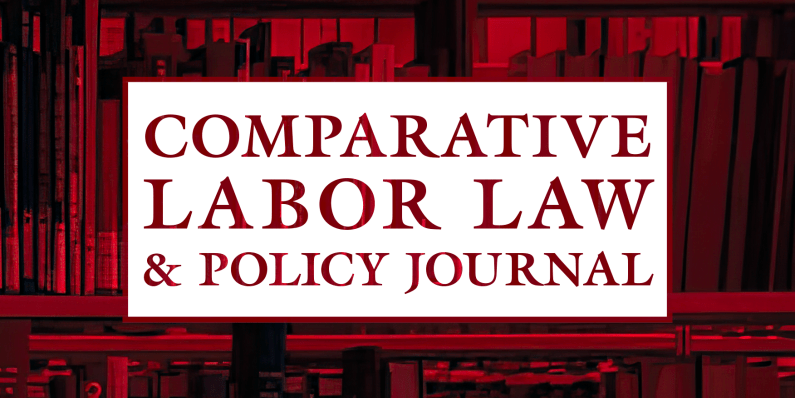Special Issue
Comparative Labor Law & Policy Journal
The Fragmentation of Labour Law: Retrospective and Prospective Outlooks
Guest Editor : Dalia Gesualdi-Fecteau (Université de Montréal)
This special issue examines the challenges to labour law’s effectiveness that arise from the interface between multiple sources of regulation and implementation institutions. Does such fragmentation undermine or enhance its effectiveness? How do workers and unions navigate the complexities laid out by the architecture of the rules and institutions governing work and employment? What are the strategies that courts, unions, workers’ centres, and the labour inspectorate lay out to mitigate the effects of this complexity? Do such strategies reduce the levels of risks workers face, enhance their autonomy, and pave the way for greater worker voice? We asked contributors to illuminate aspects of labour law’s fragmentation in light of their research on different types of work, in different sectors, with varying regulatory frameworks intersecting, and in different national contexts. Taken together, these contributions show that the effects of labour law’s fragmentation are variegated. At times, labour law’s fragmentation can provide opportunities for actors to experiment with novel strategies. In other contexts, such fragmentation can leave both workers and their representatives bewildered, leading them to turn away from labour law’s potential.
All articles in this special issue are available free of charge in open access. Simply click on the links below to read them.
The Fragmentation and Complexity of Labour Law, Effective Protections, and Better Work: An Analytical Framework
Dalia Gesualdi-Fecteau, Richard Johnstone & Geneviève Richard
The Fragmentation of French Collective Bargaining
Nicolas Moizard
Best Friend, False Friend: The “Favour” Rule in Comparative Labour Law
Luca Ratti
Meeting Mandates in a New Labour Federalism: Opportunities and Challenges
Jake Barnes, Hana Shepherd & Janice Fine
The Legal Framework for Sexual Harassment at Work in Australia and in Québec: Case Studies of Complexity and Its Countervailing Forces
Rachel Cox
Rethinking the Concept of the Employer in the Digital Economy: Corporate Fragmentation and Power Dynamics Through Labour Law and Competition Law Lenses
Silvia Rainone
When Digital Platforms Intrude Into the Regulation of Paid Domestic Work: The Case of Formalisation in Argentina
Lorena Poblete
Platform Capital and the City: Governing Uber in Buenos Aires and Manchester
Mathew Johnson & Angel Martin-Caballero
The Comparative Labor Law & Policy Journal (CLLPJ) provides a venue for leading scholarship in international labour law and the comparative analysis of labour law, employment policy, and social security issues. With an extensive world-wide circulation, the Journal has become a major international forum for research, theoretical and applied, in a field of growing global importance.



